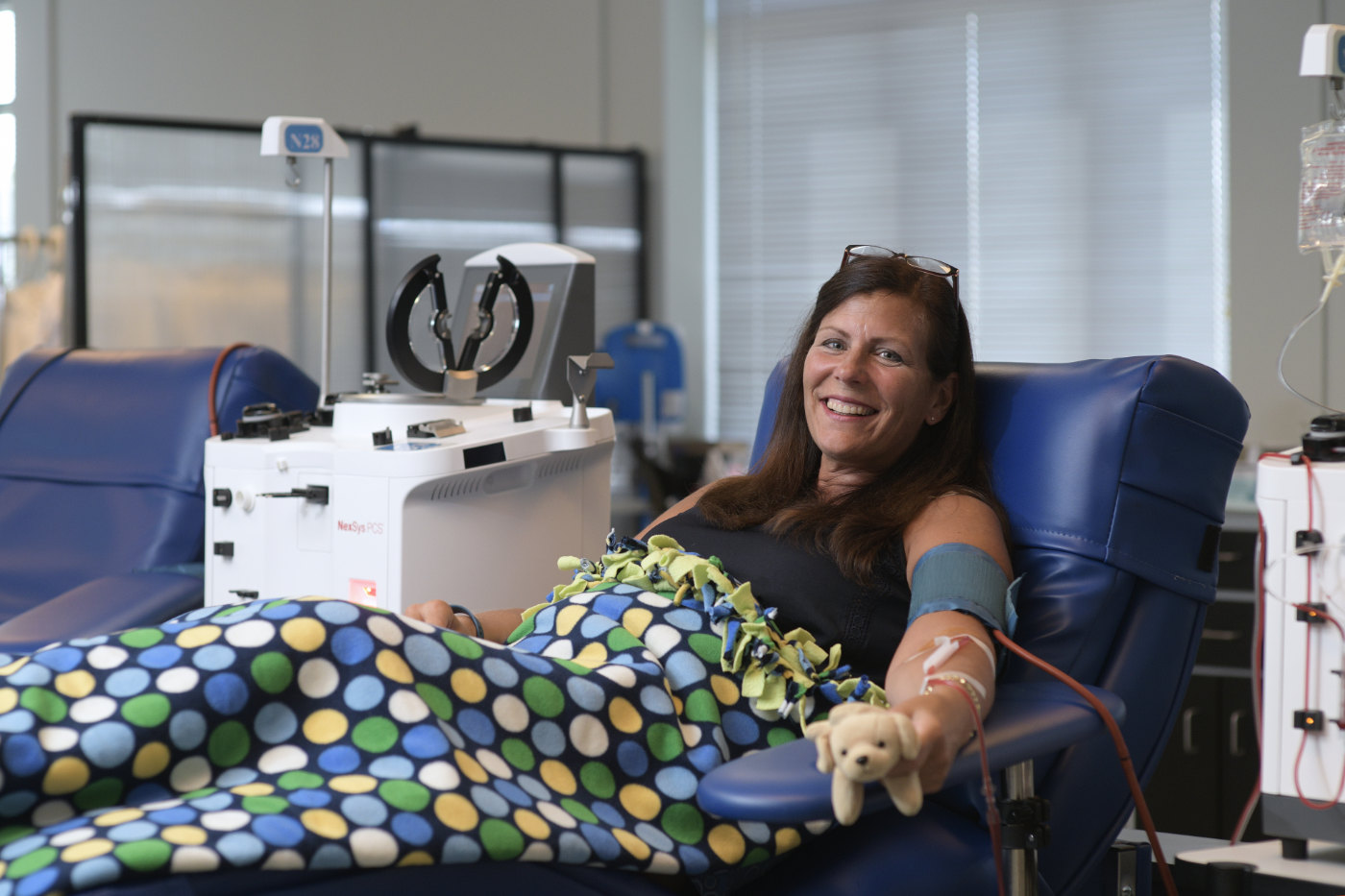Donation Experience
Women and plasma donation
Donation Experience
Women and plasma donation
April 10, 2024
Plasma donation is a safe and important process that helps save countless lives. As a woman, you might wonder whether your physiology or life stages affect your ability to donate plasma frequently.
Though there are few differences in terms of donation frequency and other characteristics between men and women, this article covers the key considerations you should take as a female donor.
Donation frequency for women donors
Whether you are a man or a woman, you can donate plasma twice within a seven-day period with at least 48 hours between donation visits.
The volume collected depends on body weight, following the guidelines for plasma collection:
- Donors weighing between 110–149 pounds (approximately 50.0–67.7 kilograms) can donate 625 milliliters (ml) of plasma, which weighs about 640 grams (g).
- Donors weighing between 150–174 pounds (approximately 68.2–79.1 kilograms) can donate 750 ml of plasma, which weighs about 770 g.
- Donors weighing 175 pounds or more (approximately 79.5 kilograms and above) can donate 800 ml of plasma, which weighs about 820 g.
These volume limits are set to guarantee your safety while also providing an adequate supply of plasma for medical needs.
You might have heard that women can donate less frequently than men. This only happens because statistically, women get more temporary deferrals due to pregnancy or other medical reasons, but in general, there is no reason to worry. You can donate as often as your center indicates as long as you are healthy and follow the standards for donation.
Health benefits of plasma donation for women
Doing good is good for you if you believe in the power of giving back. Regular donation helps you keep track of your health parameters like blood pressure, pulse, temperature, and weight. This may help reduce bad cholesterol (LDL) and increase good cholesterol (HDL) levels.
In addition, donating plasma can provide a mood boost from helping others, increasing your sense of service to the community and your mental health.
Plasma donation, pregnancy and breastfeeding
If you are pregnant, unfortunately, you cannot donate plasma. This rule was put in place so that you can save all your energy for you and the baby until the end of the pregnancy. After delivery, you should wait at least six weeks to restore all your blood parameters to their previous levels before donating plasma again.
What if you breastfeed after six weeks? You can donate if your doctor allows you to, according to the eligibility criteria that apply to all women.
Menstruation and plasma donation
Worried about donating during that time of the month? You can donate plasma during your menstrual period if you feel well and don’t have any health issues. In any case, if you are a frequent donor and a woman, it is always a good idea to regularly check your iron levels to make sure you don’t suffer from anemia.
Menopause and plasma donation
There are no limitations regarding plasma donation once you have reached menopause if you feel fit and well on the day. You can also donate plasma if you are taking hormonal replacement therapy HRT or other complementary, herbal, or homeopathic alternatives, to alleviate menopause symptoms.
Rh negative women and the Anti-D program
In addition, if you are an Rh-negative woman – which means that your blood type is negative and your blood cells lack the Rh protein called the D antigen – you can donate plasma for the Anti-D Program to prevent hemolytic disease in newborns. This is a condition where a mother’s immune system attacks her baby’s red blood cells if they are Rh-positive while she is Rh-negative.
Other health considerations
Conditions like anemia, which often affect women more than men, may affect your donor eligibility. Even though plasma donation has lower iron requirements than whole-blood donation, keeping track of your hemoglobin levels is always a good idea for your health.
Overall, plasma donation is a rewarding experience that all women can easily do as long as they prioritize their health and well-being.






